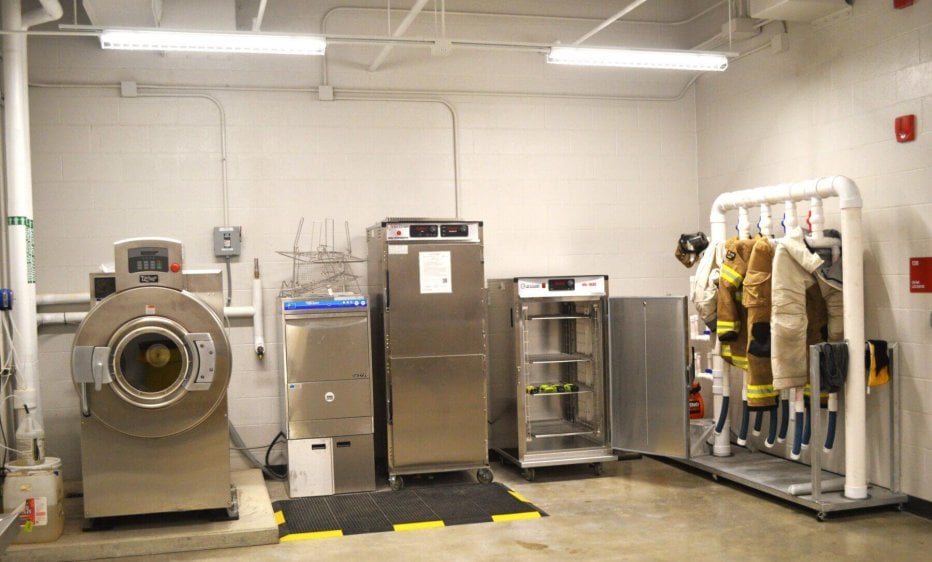Beyond Bricks: Architect Robert Mitchell Designs Fire Stations with Safety at the Core

By: Yogesh Ramadoss, Product Marketing Manager
In an exclusive interview, Cres Guard sat down with Robert (Bob) Mitchell, an architect with Wendel Companies. With a remarkable career designing public safety facilities spanning back to 1993, Bob has been the creative mind behind the design of more than 200 fire and police stations. His years of experience and hundreds of municipal interactions have taught him much about public safety departments and their intricate operations.
As we explored the evolving landscape of his profession, Bob shared insights into the dynamic trends he’s seen over the decades.
“What started as a focus on (indoor) air quality due to tailpipe emissions from vehicles impacting the work and living quarters of firefighters has transitioned into a great focus on station cleanliness,” Bob said.
In his experience, biological hazards have become acknowledged as a very large concern across fire & police stations.
“In the most recent decades, the concern over carcinogens as a result of fire byproducts left on turnout gear (coats, helmets, gloves, and hoods) has now broadened significantly to include concerns about biological hazards such as Flu, COVID, bedbugs, and other transmitted diseases.”
When the discussion moved toward firefighter health and wellness in the modern era, Bob highlighted a staggering statistic.
“Typically, more than 70% of emergency responses in the modern fire service involve a medical condition, whether or not an ambulance is involved,” Bob said. “For these calls, first responders are at high risk of biological contamination on boots, clothing, and medical kits, whether the call is at the victims’ home, work, a public venue, or at a roadside accident.”
Couple this with ever-increasing call volume and you have the perfect storm of cross-contamination of clothing and living quarters, and a subsequent transmission of the contaminants to the responder’s home and family. Bob recognizes Cres Guard as a product with the potential to minimize the risk of infections and contamination for first responders.
Reflecting on historical lessons, Bob mentioned the death of President Garfield, who suffered a gunshot, but ultimately passed not from the wounds, but from the complications of sepsis 80 days later. This serves as a stark reminder of the critical importance of infection prevention.
Shifting gears to infrastructure challenges, Bob shed light on the struggles faced by older stations.
“Older stations–they’re just obsolete. Stations, especially those built before 1976 are tremendously hard to bring up to code,” Bob said. “We often find a solution in building a new, free-standing addition and connecting it with a flexible joint. Then, the original building can be renovated and repurposed for non-essential functions that can be used by the department.”
Bob also touched on the uphill battle volunteer departments face when attracting younger recruits and the financial shock of new construction endeavors.
“Another factor, often greatly impacting volunteer departments, is attracting younger volunteers. They simply are turned off by the old, unhealthy structures and more commonly prioritize their Health and Safety compared to earlier generations.” According to Bob, “There’s also just no way around the ‘heart attack’ caused by the sticker shock of new construction.”
In architecture, each project tells a story, and Bob Mitchell stands as a key storyteller shaping the future of public safety facilities. Cres Guard’s efforts to protect first responders from biological hazards are consistent with his support and commitment to the future health & safety of fire, EMS & law enforcement services. Special thanks to Bob for sharing his insights and believing in the Cres Guard mission.
For more information on Cres Guard’s 15-minute, chemical-free cycle to biologically decontaminate gear visit www.crescor-hs.com or call (877)-273-7267, x 370 or email at: [email protected]
Podcast
Contests & Promotions













